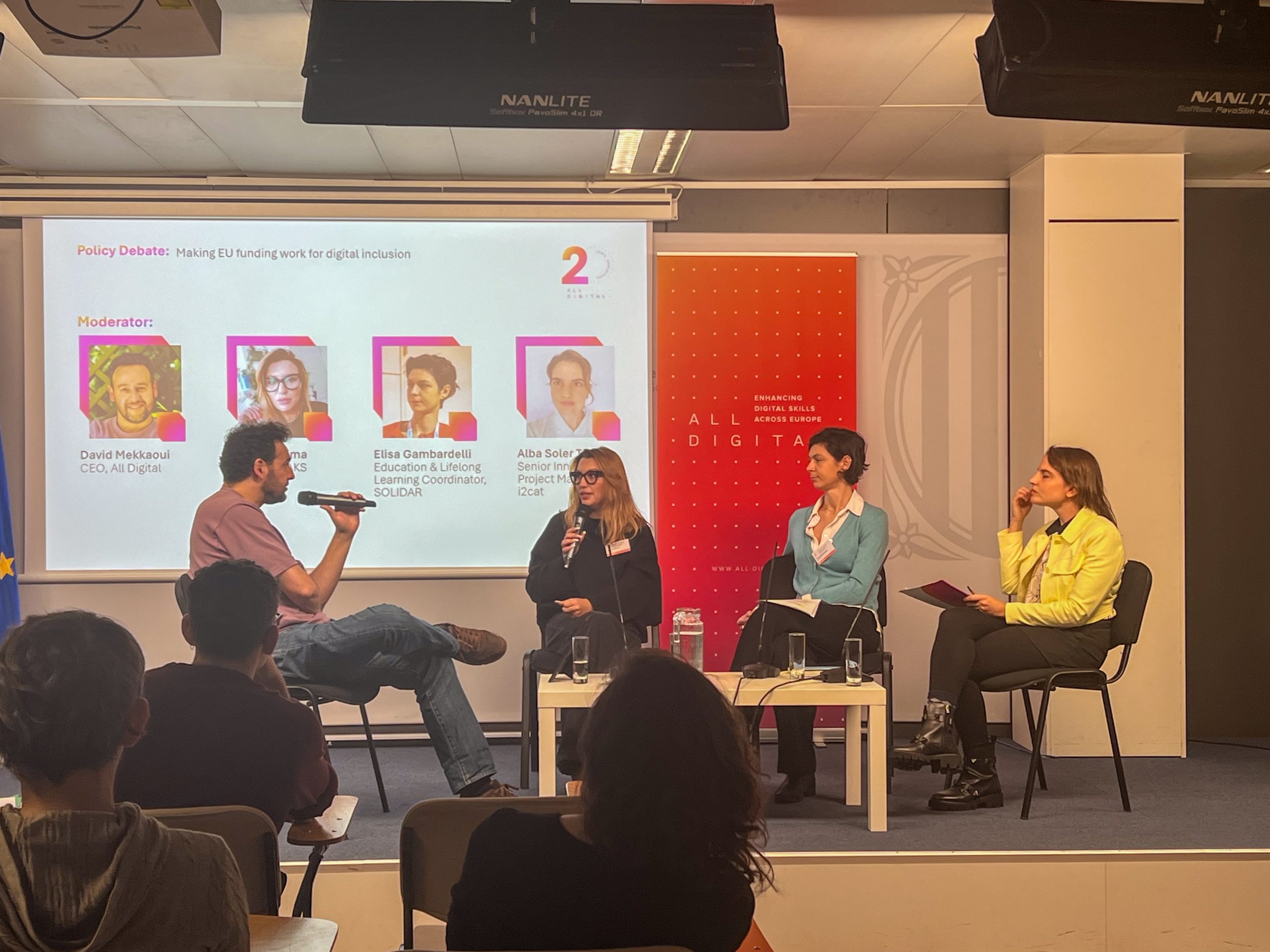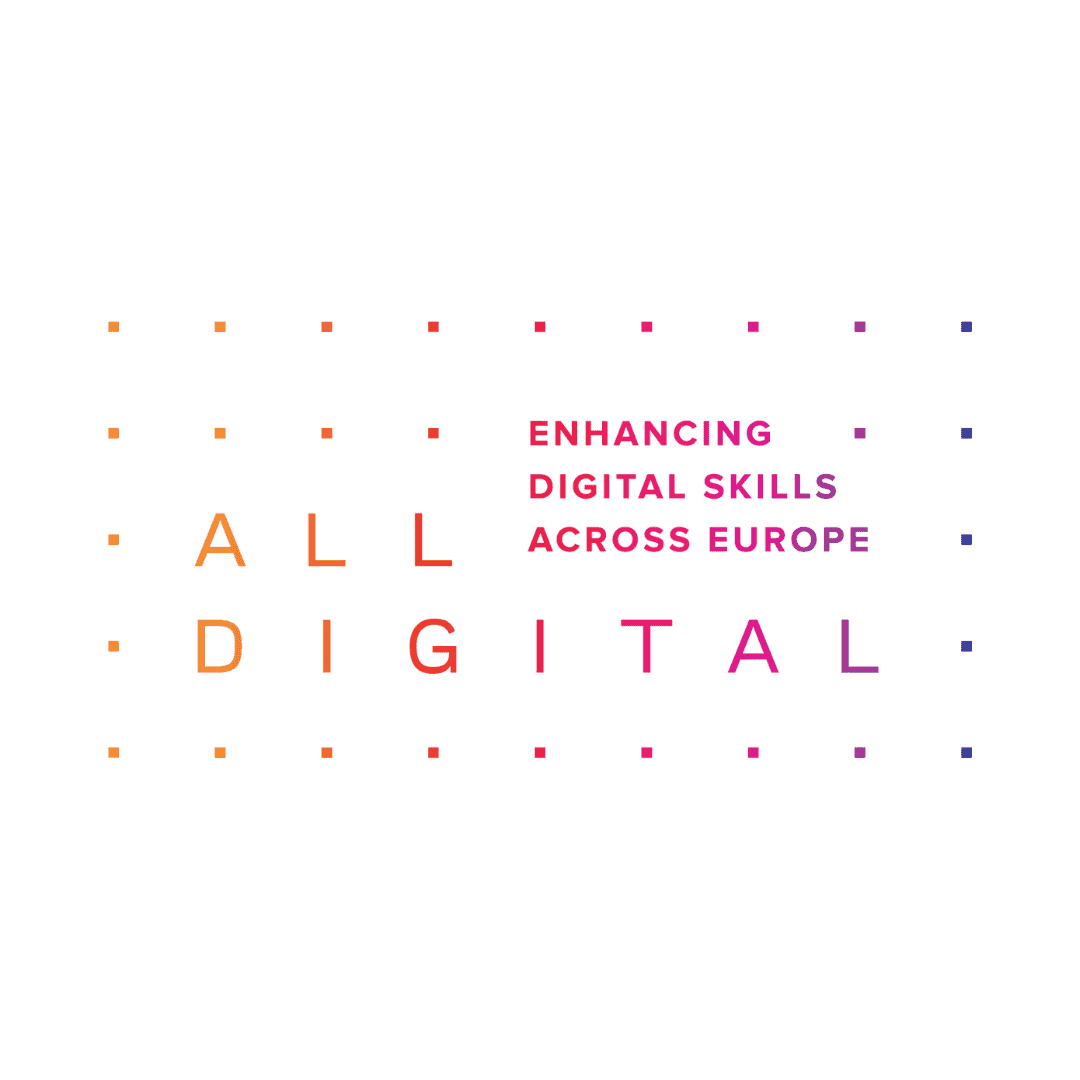
EfVET attended All Digital Policy Debate in Brussels to reflect on how the EU funding can work for digital inclusion. As the European Union is preparing its next Multiannual Financial Framework, digital inclusion becomes a priority factor for competitiveness, wellbeing and equity, as still, 44% of Europeans lack basic digital skills, which translates into exclusion.

Digital inclusion reflection: The future vision
David Mekkaoui, CEO of All Digital, opened the session with a key message: “digitalization is part of our everyday lives, but this does not make the world equal automatically”. He reflected on how we’re forgetting a big part of the society, who lack basic digital skills. Mekkaoui invited the participant to reflect on 15 years ahead, on what can we do to do better in a future where equality should be the main driver.
He was then followed by Leo Kilroy, Education and Skills Attaché to Ireland’s Permanent Representation to the EU, who explained Ireland’s policy, their program “Hands in digital” and the different strategies they use to work on digital skills. Lastly, he explained what role the funding takes in it, reinforcing the need for more funding.
The policy debate featured Andreea Dima (Director, MAKS), Elisa Gambardelli (Education & Lifelong Learning Coordinator, SOLIDAR) and Alba Soler Turull (Senior Innovation Project Manager, i2cat). The debate covered a wide range of topics, centred about the future vision of digital inclusion. Success stories where shared, where non-formal education enabled and powered individuals to get digital skills. The participation of all the actors to cooperate in the design of the technology from the start, taking into account the civil society’s perspective, was also a recurrent priority.
The event featured two interactive sessions where participants engaged about digital inclusion visioning and about funding priorities, reflecting on how to make Europe competitive in a digital future while maintaining the inclusivity in the centre of the digital future.

The Funding Outlook
Lastly, the session finished with a last policy debate on the funding outlook, moderated by Brikena Xhomaqi (Director, Lifelong Learning Platform) and with the perspectives of Georgi Dimitrov (Head of Unit, European Commission / DG EAC), Leo Kilroy (Education and Skills Attaché to Ireland’s Permanent Representation to the EU) and Jan Büscher (Co-Director General, La Mednum). The experts reflected on the amount of funding that the EU invested in digital literacy, putting special attention in where exactly it’s being invested. A common discussed topic was the need of focusing on regional and local needs, rather than only national plans – even though sometimes it’s the responsability as the member states, it’s a recurring topic. Lastly, simplification plays a big role in the cohesion of the funding, making it accessible for everyone should be one of the priorities of the next MFF.
Conclusions
Europe cannot afford another decade of small digital inclusion efforts. To be competitive and to bring citizen wellbeing means having a funding architecture that supports community-driven initiatives, takes social inclusion into account and recognises the key role of digital inclusion. Full alignment between vision, policy and funding will determine whether Europe builds a competitive and inclusive digital future for everyone.
